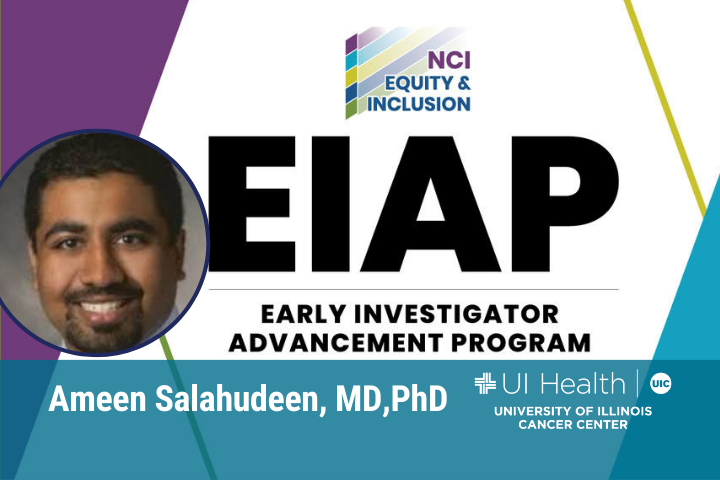
University of Illinois Cancer Center member Ameen Salahudeen, MD, PhD, was recently named to the third cohort of the National Cancer Institute’s (NCI) Early Investigator Advancement Program (EIAP).
Salahudeen is part of a 25-member cohort in the program designed to support the development of early-stage and new investigators in cancer and cancer health disparities research.
The program helps to guide cancer researchers and clinician-scientists in preparing an R01 (or equivalent) grant application, foster mentor and peer networks, and grow the community of diverse emerging investigators, according to the NCI’s February 6 announcement.
About Salahudeen
Part of the Cancer Center’s Translational Oncology Research Program, Salahudeen is an assistant professor of medicine and biochemistry at the University of Illinois Chicago.
He focuses on improving health equity through novel technologies and AI platforms. His research group focuses on basic and translational research to advance screening, diagnostic and therapeutic paradigms, including projects within the AI.Health4all Center initiative in the University of Illinois College of Medicine. Salahudeen’s primary clinical interest lies in thoracic and head and neck oncology, areas he specialized in as an Instructor of Medicine and hematology oncology fellow at Stanford University.
He was the lead and corresponding author of a recent study published in Cell Reports about how researchers have identified a new way to screen genes that cause several different types of cancers to grow, identifying particularly promising targets for precision oncology in oral and esophageal squamous cancers.
